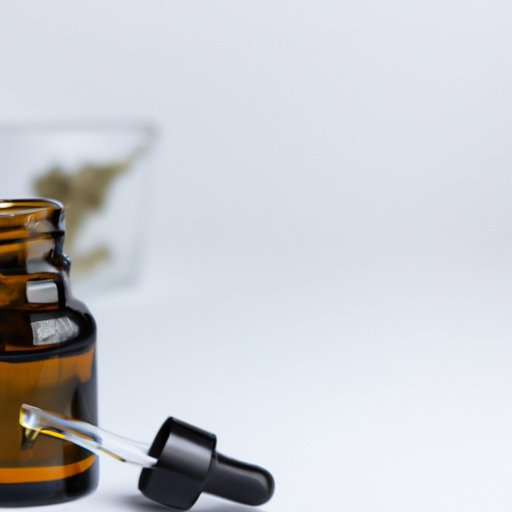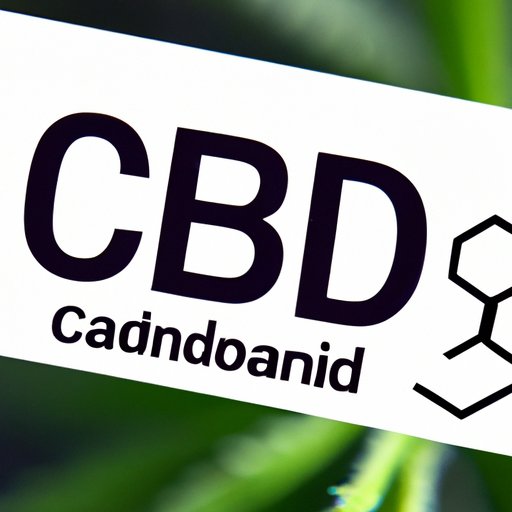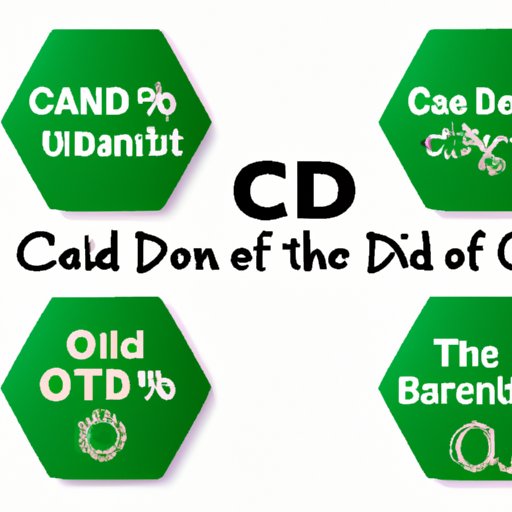Introduction
In recent years, CBD has become increasingly popular due to its potential benefits for a variety of conditions, such as anxiety and chronic pain. However, as with any supplement or medication, there are certain scenarios when CBD may not be the best choice. In this article, we’ll explore five unexpected situations when taking CBD may not be recommended, common myths and misconceptions around CBD, potential risks and downsides of taking CBD, and scenarios where someone should avoid taking CBD altogether. It’s important to note that this article is not intended as medical advice, and it’s always best to consult a healthcare professional before taking any new supplement.

5 Unexpected Situations When CBD May Not Be the Best Choice
While CBD has been shown to have many potential benefits, there are certain scenarios where taking CBD may not be recommended. Here are 5 different situations where taking CBD may not be the best choice:
1. Pregnancy and breastfeeding
There is still limited research available on the effects of CBD on developing fetuses or infants, so it’s best to avoid taking CBD during pregnancy or while breastfeeding. While CBD is generally considered safe for adults, it’s always best to err on the side of caution when it comes to the safety of a developing baby.
2. Children and infants
Although CBD has been shown to have potential benefits for certain conditions in adults, there is insufficient research on how it may affect children and infants. As with pregnancy and breastfeeding, it’s best to avoid giving CBD to children or infants until more research is available.
3. People with liver problems
When consumed, CBD is processed in the liver, which means that individuals with liver problems may have an increased risk of liver damage. If you have a history of liver problems, it’s best to avoid CBD or speak to a healthcare professional before taking it.
4. Individuals taking medication
If you are taking other medications, it’s important to speak to a healthcare professional before taking CBD. CBD can interact with certain medications, including blood thinners, antidepressants, and anti-seizure medication, which can lead to potentially harmful interactions.
5. People with low blood pressure
CBD has been shown to lower blood pressure, which can be beneficial for some individuals. However, if you already have low blood pressure, taking CBD can cause your blood pressure to drop too low, which can lead to dizziness and fainting. If you have low blood pressure, speak to a healthcare professional before taking CBD.

Understanding CBD: 4 Reasons to Avoid Taking CBD Oil
CBD oil is one of the most common forms of CBD, and it’s important to understand what it is and how it works before deciding to take it. Here are 4 different reasons why someone may choose to avoid taking CBD oil:
1. Potential side effects
While CBD is generally considered safe, it can have potential side effects, including drowsiness, fatigue, and dry mouth. If you have a history of these side effects with other medications, it’s important to speak to a healthcare professional before taking CBD.
2. Interactions with other medications
As mentioned earlier, CBD can interact with certain medications, which can lead to harmful interactions. If you are taking other medications, speak to a healthcare professional before taking CBD to ensure that it won’t interact with your current medication regimen.
3. Addiction and dependence
While CBD is not considered addictive, it’s important to note that some individuals may become dependent on it. If you have a history of addiction or are at risk of addiction, it’s important to speak to a healthcare professional before taking CBD.
4. Unknown long-term effects
Although CBD has been studied extensively in recent years, there is still much to learn about the long-term effects of taking CBD. If you are concerned about the potential long-term effects of taking CBD, it’s important to speak to a healthcare professional before taking it.
CBD Myths and Misconceptions: 3 Instances You Should Skip CBD
There are many myths and misconceptions around CBD, and it’s important to understand the truth before deciding to take it. Here are 3 different situations where someone may think they should take CBD, but it’s actually not recommended:
1. As a cure-all
While CBD has been shown to have potential benefits for certain conditions, it’s important to understand that it’s not a cure-all. If you are looking for a supplement to treat a specific condition, it’s important to speak to a healthcare professional before taking CBD.
2. To get high or as a recreational drug
While CBD is derived from the same plant as marijuana, it does not cause the psychoactive effects associated with marijuana use. If you are looking to get high or use CBD as a recreational drug, it’s important to note that this is not its intended purpose.
3. To replace prescribed medications
While CBD can be a beneficial supplement for certain conditions, it’s important to understand that it is not meant to replace prescribed medications. If you are considering using CBD in place of prescribed medication, speak to a healthcare professional before doing so.
The Dark Side of CBD: When It’s Not a Good Idea to Take It
While CBD has many potential benefits, there are also potential risks and downsides to taking it. Here are different scenarios where taking CBD may not be a good idea:
1. Impaired thinking and judgement
CBD can cause drowsiness and impair thinking and judgement, which can be problematic for certain individuals. If you need to operate heavy machinery or perform activities that require clear thinking, it’s important to be cautious when taking CBD.
2. Psychosis and psychiatric disorders
While CBD has been shown to have potential benefits for anxiety and depression, it’s important to note that it can also induce psychosis and exacerbate psychiatric disorders in some individuals. If you have a history of these conditions, speak to a healthcare professional before taking CBD.
3. Negative interactions with certain substances
CBD can interact with certain substances, such as alcohol and other drugs, which can lead to harmful interactions. If you are planning to take CBD and also consume alcohol or take other drugs, it’s important to speak to a healthcare professional before doing so.
Thinking of Trying CBD? Here Are 3 Scenarios Where You Shouldn’t
While CBD has potential benefits for certain individuals, there are certain scenarios where it may not be the best choice. Here are 3 different scenarios where someone should avoid taking CBD:
1. During important events
CBD can cause drowsiness and impair thinking and judgement, which can be problematic if you need to be alert for an important event, such as a job interview or driving test.
2. If you have a personal or family history of addiction
If you have a personal or family history of addiction, it’s important to be cautious when taking any supplement or medication, including CBD.
3. With a history of mental health disorders
While CBD has been shown to have potential benefits for anxiety and depression, it can also induce psychosis and exacerbate certain mental health disorders. If you have a history of these conditions, speak to a healthcare professional before taking CBD.
Conclusion
While CBD has potential benefits for certain individuals, it’s important to understand that it may not be the best choice for everyone. If you are considering taking CBD, speak to a healthcare professional before doing so to ensure that it is safe and appropriate for your specific needs and circumstances.
